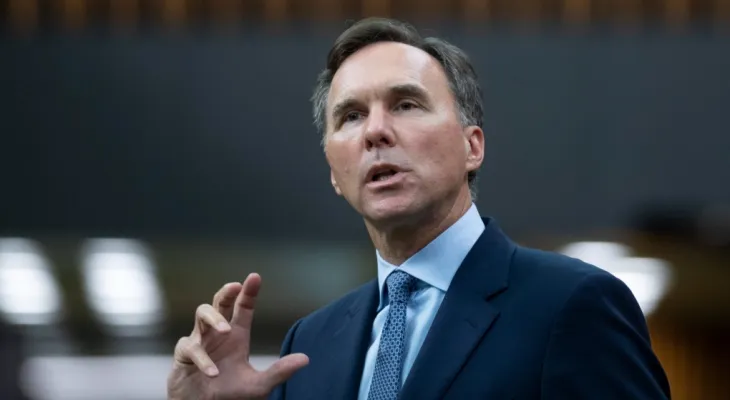Search here
Newspaper
Search here

Arab Canada News
News

Published: August 23, 2024
While the Canadian government seeks to make progress with the upcoming American administration, former Liberal Finance Minister Bill Morneau says Canada needs to take American security concerns seriously and accelerate the timeline in which Canada meets NATO defense spending commitments.
Morneau made these comments during an exclusive television interview with CTV News' chief political correspondent Vassy Kapelos at the Democratic National Convention in Chicago on Thursday.
Morneau said, "As a Canadian, I think it's really important that we think about how we work with whoever ends up in the White House and build relationships on both sides," noting that the trend toward more protectionist policies among Democrats and Republicans means Canada needs to ramp up efforts in other areas to appease Washington.
He continued, "We need to think about what really matters to Americans. We need to think fundamentally about our approach to defense. The world is more dangerous. We are not meeting the challenges we need to face as a country," adding, "This is extremely important to the United States."
The Liberal government announced last month, amid increasing pressure from allies, that it would meet the alliance's goal of spending 2% of GDP on defense by 2032.
Canada is currently spending only 1.37% of GDP on defense.
Morneau said, "I think we need to think seriously not just about how to meet the NATO commitment in the timeframe we've mentioned but how we can do it faster to ensure that Americans can see our ramp-up."
Accelerating the timeline in which Canada meets the 2% commitment will require the federal government to spend billions more each year.
"Yes, it's expensive. Yes, it goes up by about $15 billion annually, which is a large amount, but think about the importance of our trade relationship with the United States. Think about the need to ally with our partners."
The former finance minister acknowledged that the federal government will have to make tough choices in order to make historic investments in defense within a fiscally responsible framework.
Comments